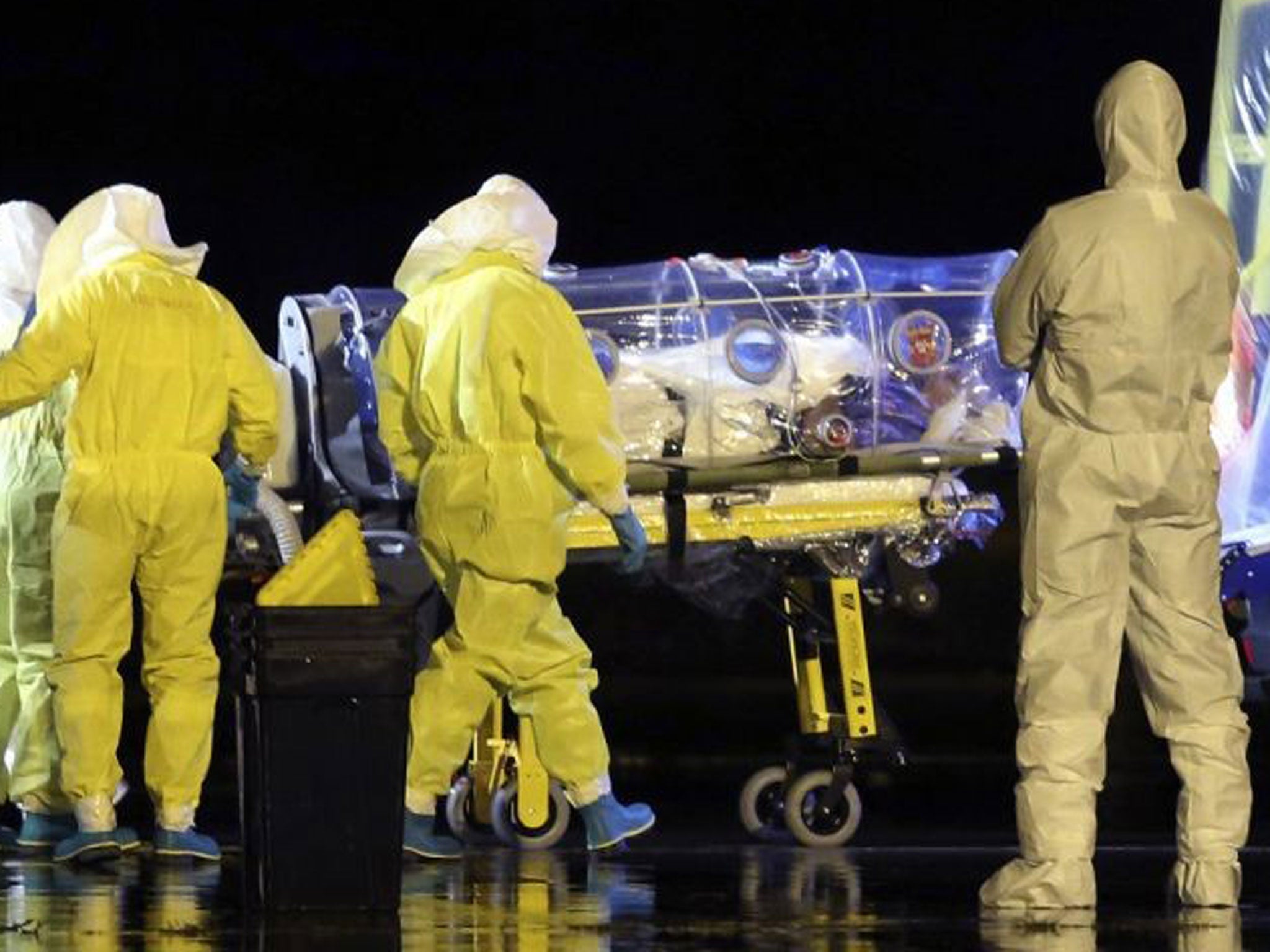Ebola outbreak: 164 NHS health workers volunteer to join the fight in Africa
Medics answer nationwide call for volunteers

At least 164 NHS staff have joined the fight against West Africa’s Ebola outbreak, less than a week after England’s top doctors issued a nationwide call for volunteers.
The Department of Health said the number signing up was “going up all the time”. The staff, who are understood to include doctors, nurses and infectious disease experts will now undergo special training and will be deployed to man a 62-bed treatment centre in Sierra Leone, built by British military engineers near the capital, Freetown.
Dame Sally Davies, England’s chief medical officer, said that Ebola was “devastating” healthcare systems in Guinea, Liberia and Sierra Leone and praised the “selflessness and dedication of NHS staff".
She said that the focus of British aid efforts should be on “bringing back into play” the countries’ own healthcare workforce – many of whom have been unable to go to work because hospitals have shut their doors, or have refused to work for fear of infection. Shortages of even the most basic infection control equipment have been reported in the affected countries, and hundreds of healthcare workers are among more than 2,800 that the outbreak has killed so far.
The surge in support from NHS staff came as the World Health Organisation said that the number of people infected by the virus could reach 20,000 by November without greater efforts to combat the outbreak.
Experts also revised up their estimate of the death rate in the current epidemic, from 50 per cent to 70 per cent.
So far, the WHO has officially recorded 2,803 deaths from Ebola and 5,843 cases, but the true number is likely to be higher because many deaths in people’s homes, especially in remote rural areas, are going unrecorded.
Dr Christopher Dye, director of strategy for the WHO, said that the three worst-hit countries “will soon be reporting thousands of cases and deaths each week”, if improvements were not made in contacting and isolating victims of infection, in caring for the sick, and in educating communities about infection control.
The international community has stepped up its response to the Ebola crisis in recent days – most notably with a deployment of 3,000 US troops to West Africa to offer logistical support to the relief effort.
In other developments, fast-tracked clinical trials of Ebola treatments were announced today, which will see experimental drugs tested on Ebola patients in West Africa for the first time.
Several potential treatments, including drugs, vaccines and donated blood from patients who have survived Ebola, are being considered, including ZMapp, the drug which was used to treat the British Ebola victim, nurse William Pooley.
A £3.2m grant from the British medical research foundation the Wellcome Trust will allow groups including Mèdecins Sans Frontiéres, the World Health Organisation and the University of Oxford to quickly test the effectiveness of new treatments at a number of medical facilities in the Ebola-hit countries.
The WHO approved the use of experimental medicines in August – a sign of the gravity the crisis.
Dr Peter Horby, of the Centre for Tropical Medicine and Global Health at the University of Oxford, who will lead the clinical trials initiative, said that Ebola was “an ongoing tragedy of immense proportions”.
“In essence we need straightforward clinical trials, as for any drug for any disease, but new ways of working will be needed to provide rapid and reliable answers in perhaps the most challenging outbreak we have ever encountered,” he said.
Jeremy Farrar, director of the Wellcome Trust said: “It is a huge challenge to carry out clinical trials under such difficult conditions but ultimately this is the only way we will ever find out whether any new Ebola treatment actually work.”
More than 40 UK military personnel and humanitarian staff have now arrived in Freetown to oversee the construction of the UK’s treatment facility, as part of a £100m British mission to the region, the Government said.
Foreign Secretary Philip Hammond chaired a meeting of the Government’s emergency COBRA committee on Ebola, via video link from New York, where he is attending the meeting of the UN General Assembly.
He said that it was vital the global community “translates its concern into action” and said an international conference on the crisis would be held in London next week.
“This outbreak has wide-ranging humanitarian and security consequences for the region, and the world,” he said. “Defeating this disease will need a global coalition, as well as innovative approaches to reducing the spread of the virus in communities.”
Join our commenting forum
Join thought-provoking conversations, follow other Independent readers and see their replies
Comments